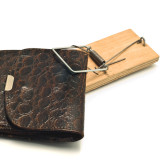The eighth installment of the Debit Issuer Study was released in July and the results
reaffirmed what many observers can plainly see: prepaid cards are multiplying at a rapid
rate. Commissioned by the ATM/debit network PULSE, a Discover Financial Services
Company, and conducted by the consulting group Oliver Wyman, the annual study took
the pulse of 64 large banks, credit unions and community banks to better understand both
their current activities and plans for the massive debit market.
In general, what the study found was that most financial institutions have already
embraced prepaid cards in one form or another. Indeed, fully 84% of the study’s
participants – which collectively represent almost half of all debit transactions in the U.S.
– offer a prepaid card. Typically, the most popular cards offered are gift cards, which are
sold by 73% of issuers. But the study’s authors also note that financial institution’s
attitudes towards gift cards – which have weak sales – are indifferent at best.
By stark contrast, re-loadable prepaid debit cards are soaring in popularity. In fact,
between 2011 and 2012 the number of financial institutions offering them nearly
doubled, going from 19% to 36%. That rapid growth can be easily explained by study
participant’s expectations for 2013 prepaid card sales. Although respondents project that
gift card sales will slump by 2% in 2013, they anticipate 55% year-over-year growth for
re-loadable prepaid cards.
Naturally, the PULSE study also closely examined the state of debit cards. Although
changes to the law have put a ceiling on fees – known as interchange rates – that can be
charged when consumers use a debit card for either a PIN purchase or one that requires a
signature, the debit market continues to grow. “Even in the face of significant regulatory
challenges, issuers managed to grow their debit volumes in 2012 and expect further
growth this year,” says Steve Sievert, executive vice president of marketing and
communications for PULSE.
Overall, survey respondents saw a 14% increase in PIN transactions and a 6% hike in
signature purchases in 2012. Looking to 2013, financial institutions expect 8% and 4%
increases, respectively. “Issuers are more tepid in their outlook for debit. They still expect
the industry to grow, just not as rapidly as in the past,” says Tony Hayes, a partner at
Oliver Wyman, who co-led the study. “In fact, this is the lowest growth project for
signature debit we’ve seen since the study began.”





